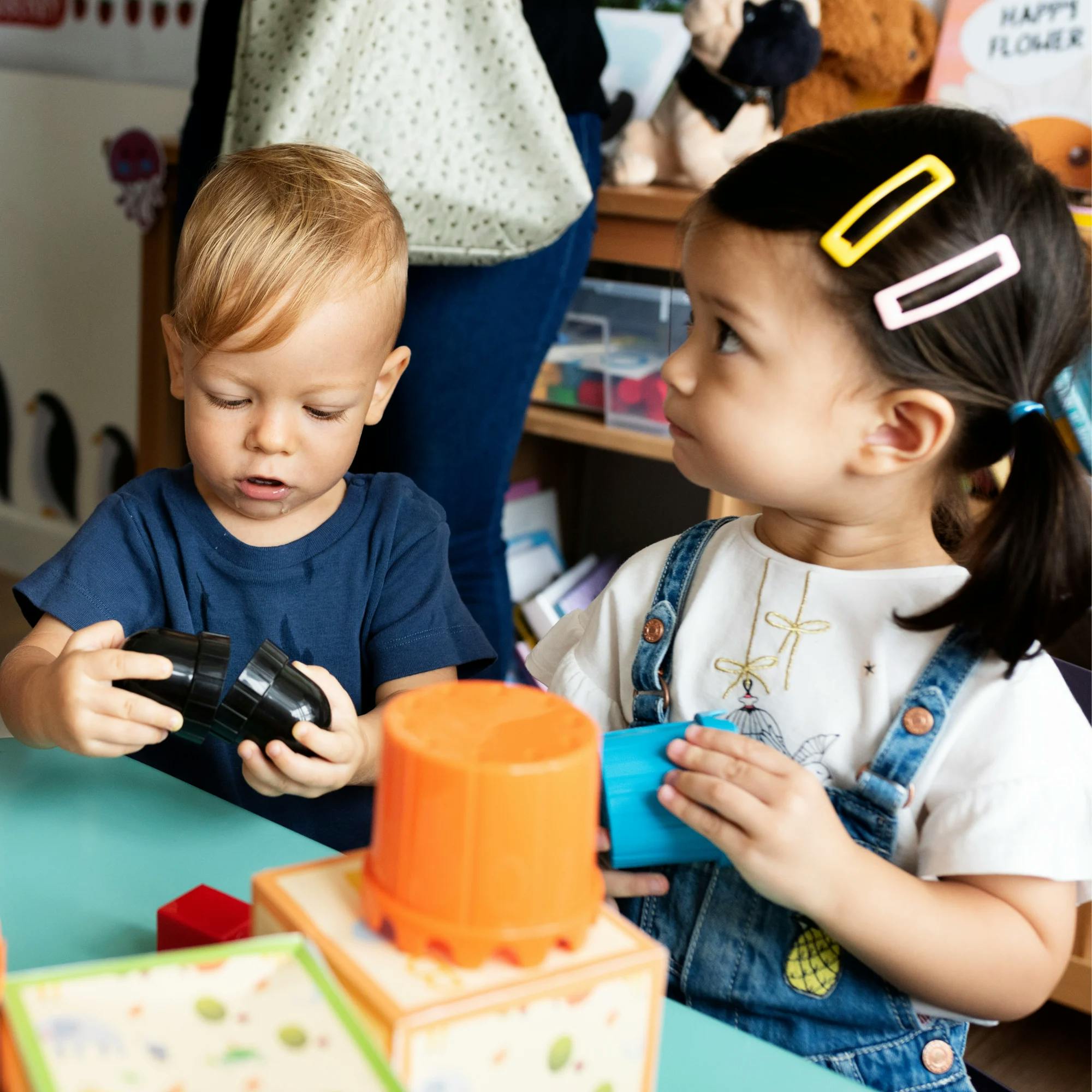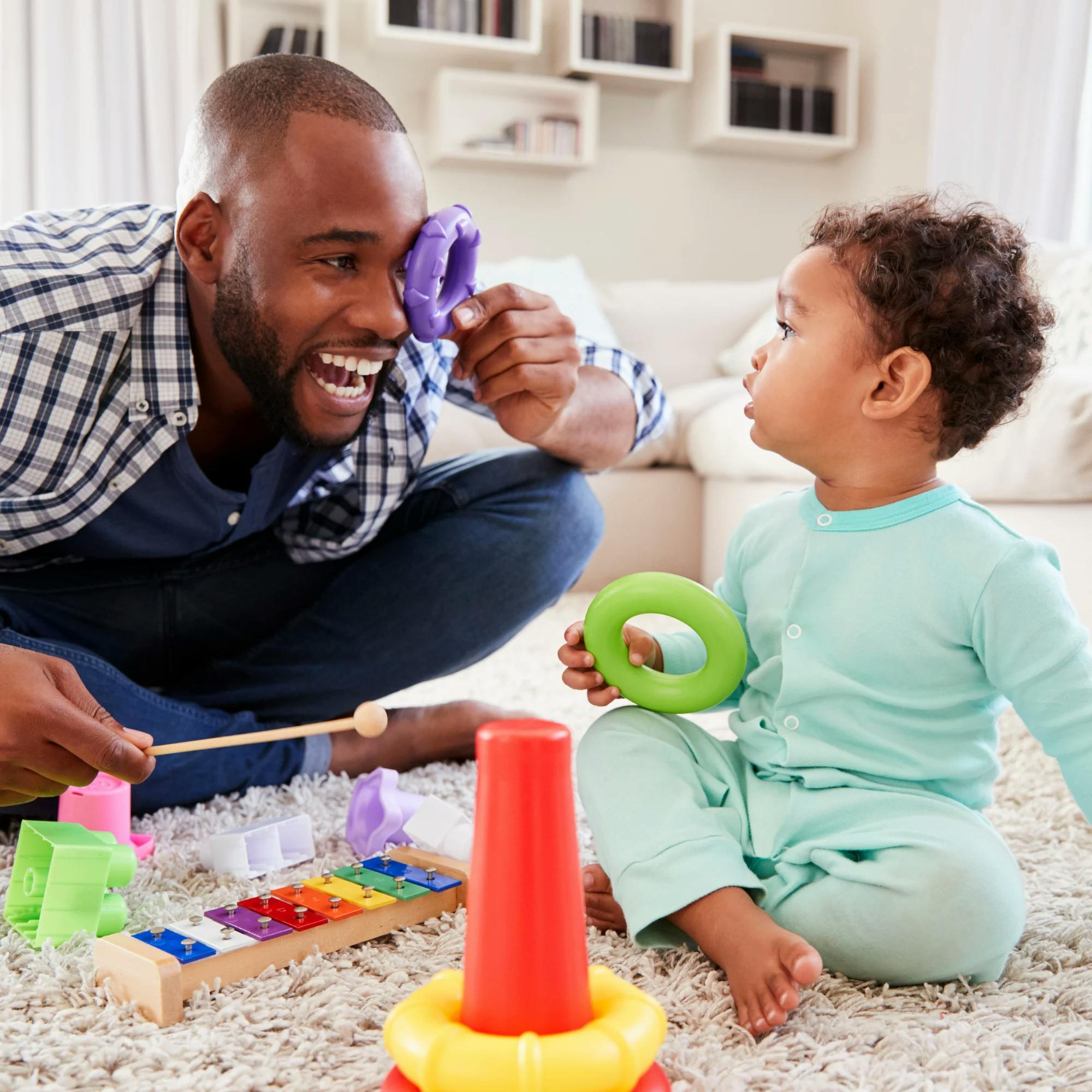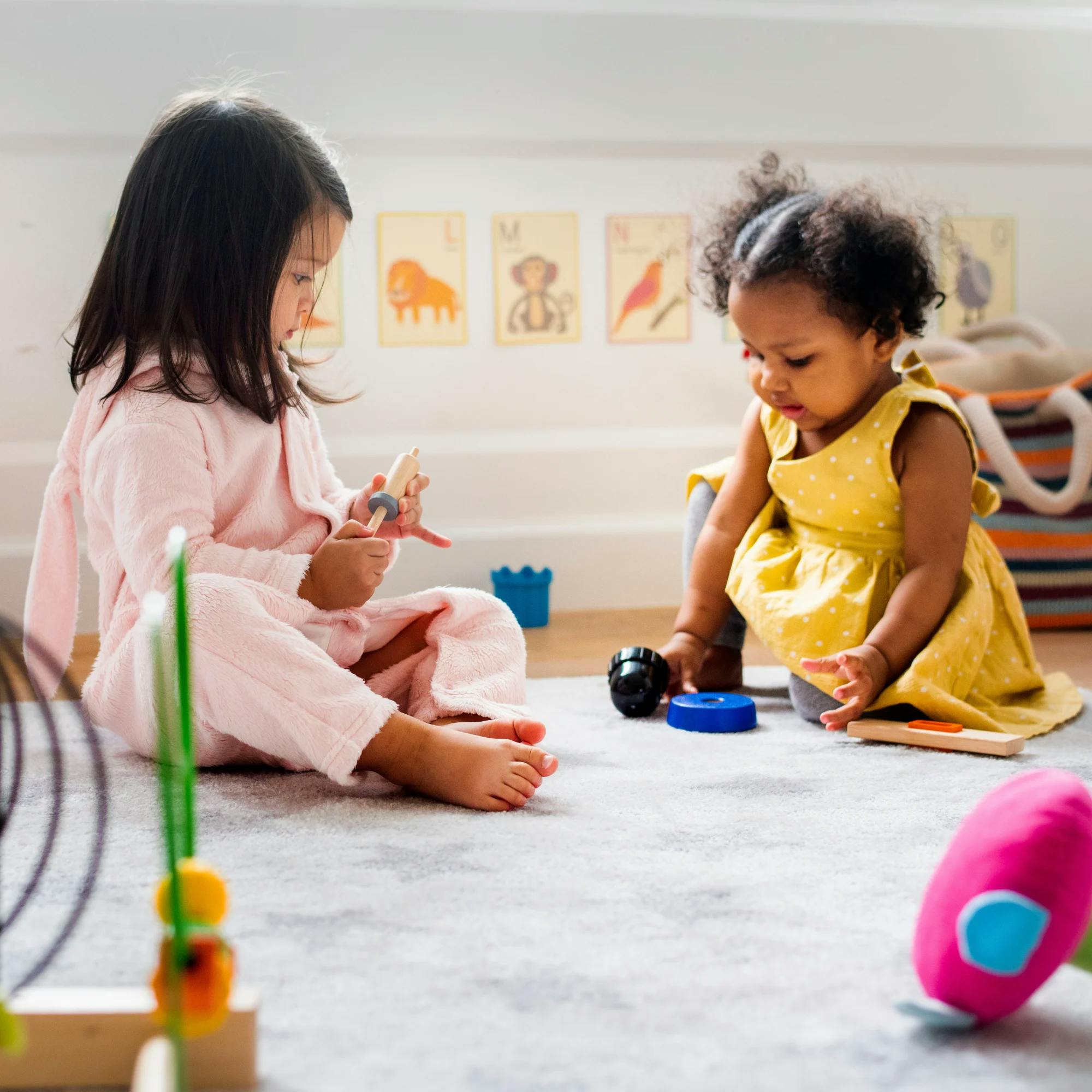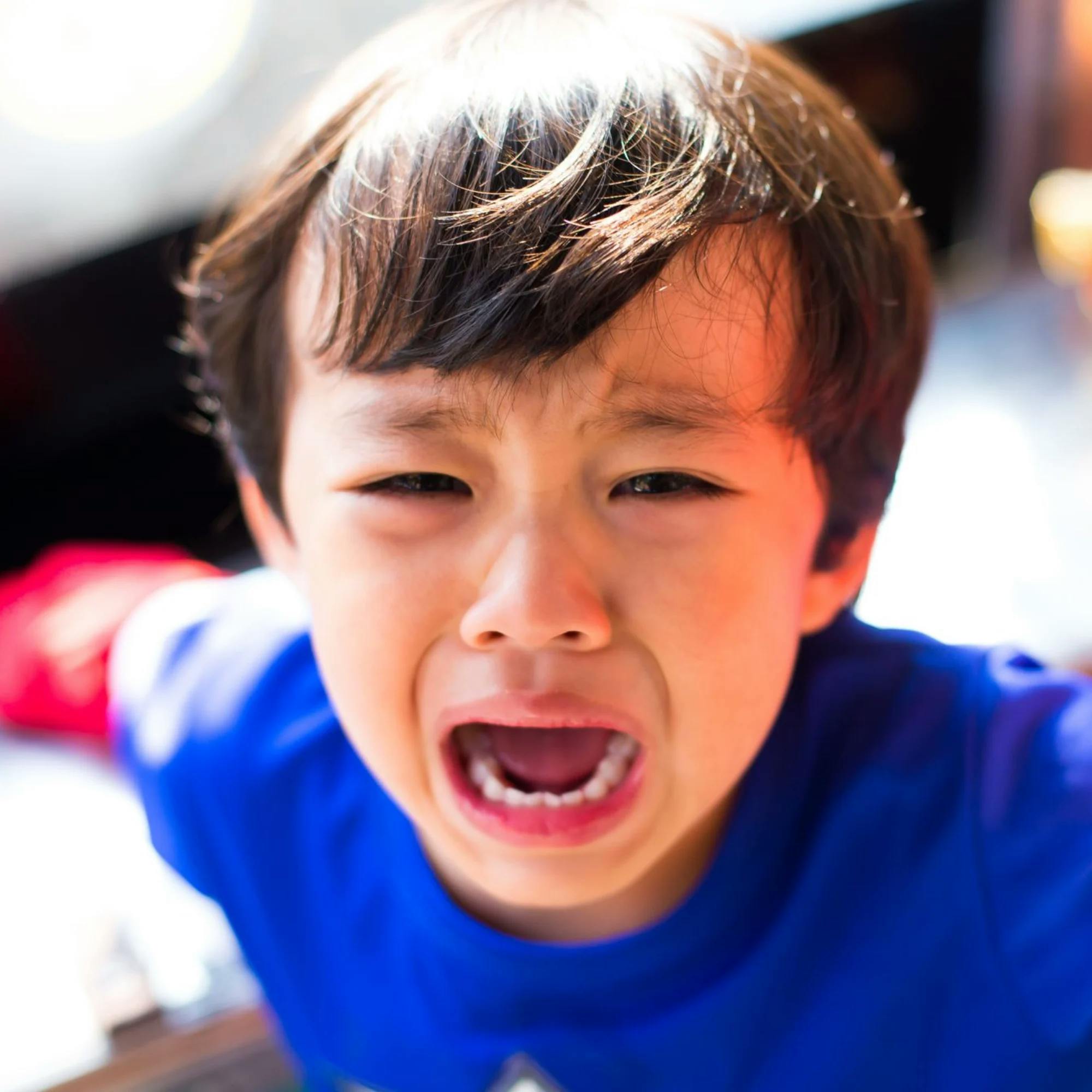If you suspect your child is a late talker or may have a speech delay, you might wonder: Will my child catch up without help? Can a speech delay go away on its own? Understanding the difference between a late talker and a speech delay, along with when to seek support, can make a big difference in helping your child thrive.
Free speech check
How well is your child speaking for their age? Find out with our free 5-minute online screener. No signup required, just answers.
 Start the screener
Start the screenerWhat is a speech delay?
Speech and language development begins early, from a baby’s first coos and babbles. By age 2, children typically say about 50 words and start combining them into two-word phrases. By age 3, their vocabulary can grow to around 1,000 words. A speech delay occurs when a child doesn’t reach these typical milestones.
Here are some signs of a speech delay to watch for:
By 12 months: No gestures like pointing or waving, and difficulty imitating sounds.
By 18 months: Prefers gestures over vocalizations and struggles to understand simple requests.
By 24 months: Can only imitate speech, uses limited words, and has trouble following directions.
By 36 months: Uses fewer than 200 words, doesn’t ask for things by name, and is difficult to understand.
Speech delays are common, affecting about 10% of preschoolers. But what causes a speech delay?


The main causes of speech delay
Speech delays can happen for many reasons, including:
Oral-motor issues: Some children have difficulty coordinating their lips, tongue, and jaw to produce speech sounds.
Hearing loss: Trouble hearing speech clearly can make it harder to learn words.
Neurological conditions: Disorders such as cerebral palsy or brain injuries may affect speech muscles.
Lack of stimulation: Children need to hear and interact with language to develop speech skills.
Developmental speech and language disorder: Some speech and language disorders involve brain function and may be a sign of a learning disability. Your child may have trouble making speech sounds, using spoken language to communicate, or understanding what other people are communicating. Speech and language problems are often the earliest sign of a learning disability.
Identifying the cause of a speech delay helps determine the best way to support your child.


Late talker or speech delay?
It’s also helpful to know the difference between a late talker and a speech delay. A late talker is typically between 18 and 30 months old. They have normal understanding, play, and social skills, but they use fewer words than expected.
In contrast, a speech delay might involve difficulty producing sounds or using words to communicate.
Can a speech or language delay go away on its own?
Some children may catch up with extra support at home, especially if their delay is mild. But for others, speech therapy is essential in order to make progress. The earlier a child receives support, the better their chance of reaching communication milestones.
Think of speech development like climbing a staircase. Each skill builds on the one before. Missing a step can make it harder to reach the next level, which is why early intervention is so important.
Concerned about your child's speech?
We're here for you. Get matched with a speech therapist who's experienced in your child's area of need and available when you are.
 Find a speech therapist
Find a speech therapistSpeech delays can affect kids socially and academically
What is the impact of a speech or language delay as a toddler grows older?
A recent study looked at 7,390 8-year-old children. These children had persistent speech disorder (PSD), which meant they still had trouble pronouncing certain speech sounds past the age that children should have speech sound errors. The kids themselves, as well as their parents and teachers, answered questions to assess any symptoms of depression or behavior problems.
To follow up, the kids and families were given questionnaires and interviews again at ages 10, 11, and 12. The study found that 8-year-old children with a speech delay were more likely to have difficulty forming friendships when they were 10 and 11 years old.
The study found that 8-year-old children with a speech delay were more likely to have difficulty forming friendships a few years later.
Other research has looked at the effects of speech and language delays on school performance. The emotional effects of speech and language problems can become more pronounced once children enter school. Suddenly, they’re surrounded by children their own age. They’re interacting with kids who may be more advanced in their communication abilities. Children often notice these differences and become self-conscious about the way they talk.
School performance can often suffer as a result. According to the American Speech-Language-Hearing Association, children with communication problems are more likely to struggle with reading and writing skills.
The more children focus on their own self-image, or fear being teased or rejected by their peers, the less time they spend focused on reading, writing, comprehension, and other academic skills. In addition, they may be less likely to participate in the classroom. Poor grades and lower confidence can contribute to this cycle of self-doubt if children don’t receive the support they need.


Speech therapy can help children with speech delay
Speech therapy provides personalized strategies to help children develop their communication skills. A speech therapist will assess your child’s unique needs, then create a targeted treatment plan. They'll also teach you techniques to practice at home, ensuring your child can build their skills during their daily routines.
How online speech therapy works for young children
Online speech therapy offers support for families from the comfort of home, at a time that works for your schedule. You and your child attend sessions with a computer or tablet, using a video platform like Zoom. You're face-to-face with your speech therapist, just like you would be in a traditional in-person setting.
Sessions are tailored to each child’s goals, and therapists coach parents on how to use language-building activities in everyday life. This collaborative approach empowers families to support their child’s progress between sessions.
Trust your instincts
If you’re concerned about your child’s speech, trust your instincts. Reach out to your child’s pediatrician or a speech therapist for an evaluation. You can also take our free online screener to see if your child is on track with the communication milestones expected for their age. Early intervention can make a powerful difference, helping your child build the skills they need to communicate and connect with the world around them.
By understanding speech delays and knowing when to seek help, you can give your child the best possible start on their communication journey.
How Expressable Can Help
Concerned your child isn't reaching age-expected milestones? Looking for communication support from a professional? Expressable is a national online speech therapy practice serving children and adults. We treat all major areas of communication and feeding, offer flexible hours including evenings and weekends, and accept most major health insurance plans. We’re proud to have earned more than 3,000 5-star reviews from our clients (4.9/5 average).
Our therapy model is centered on parent and caregiver involvement. Research proves that empowering caregivers to participate in their loved one’s therapy leads to better outcomes. That’s why we combine live, 1-on-1 speech therapy with personalized education and home practice activities for faster progress.
Communication is more than words. It’s how we share how we feel and show who we are. We’re here to help you or your child do just that.
 Abby Barnes, M.S., CCC-SLP
Abby Barnes, M.S., CCC-SLP













